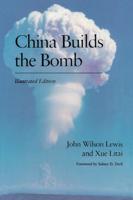Publisher's Synopsis
The 155-mm Howitzer M1 was first produced in 1942 as a medium artillery piece. It saw service with the US Army during World War II, the Korean War, and the Vietnam War, before being replaced by the M198 Howitzer. The gun was used by the armed forces of many nations, and in some countries, it still remains in service. The 155-mm Howitzer was developed as an afterthought. A new carriage was under development for much of the 1930s for the existing World War I era M1918 until 1939 when it was realized that it did not seem logical to put a new carriage underneath an obsolete howitzer. Consequently, development began anew with a carriage designed to be used for the 155-mm Howitzer. This was completed by May 15th, 1941 when the Howitzer M1 on the Carriage M1 was standardized. The howitzer itself differed from the older model by a lengthened barrel of twenty calibers and a new breech mechanism. Uniquely, it was the sole 'slow-cone' interrupted screw mechanism to enter service after 1920. This meant that two separate movements were necessary to open the breech, versus the single movement of the 'steep cone' mechanism that simultaneously rotated and withdrew the breech. Created in 1948, this field manual reveals a great deal about the 155-mm Howitzer M1's design and capabilities. Intended as a manual for those in the service of the piece, it details many aspects of the M1's assembly, maintenance, and accessories. Originally labeled restricted, this manual was declassified long ago and is here reprinted in book form. Care has been taken to preserve the integrity of the text.










